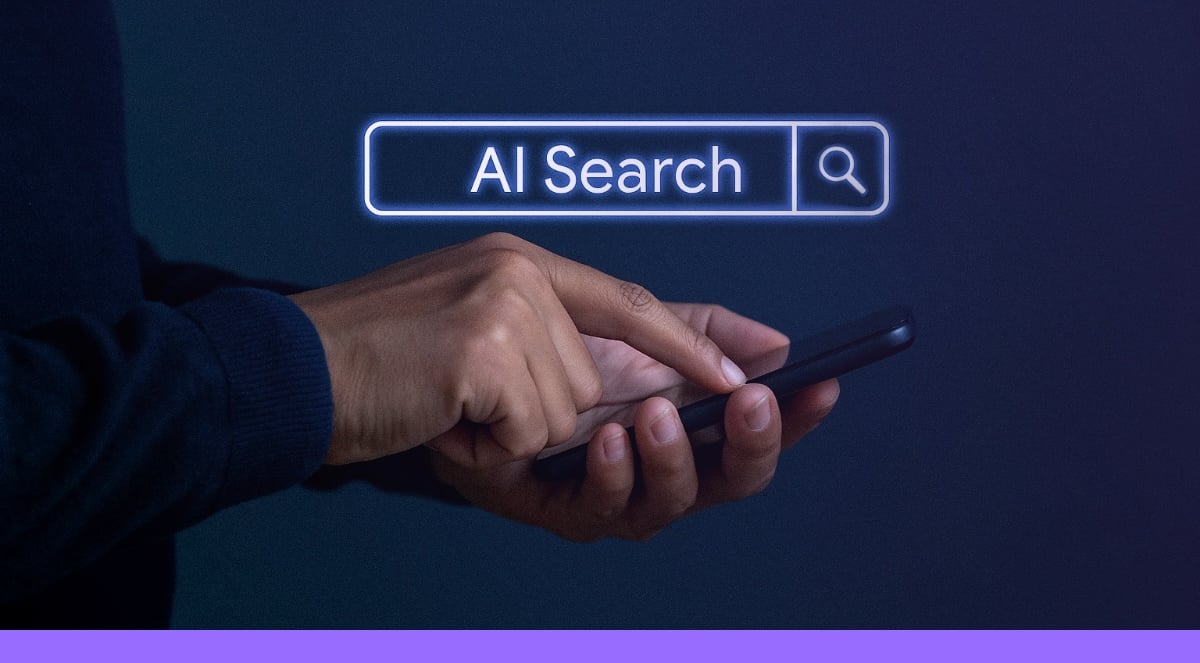Why Investing in SEO is Still Crucial—Even in the Age of ChatGPT

Artificial intelligence can generate optimized content in seconds, but has this made search engine positioning strategies obsolete? The truth is that SEO hasn’t disappeared—it has evolved toward a more strategic approach, where AI becomes a tool, not a replacement.
Every new digital technology has made people think SEO was finished: first algorithm changes, then semantic search, and now generative AI. Instead, those who know how to combine artificial intelligence with human expertise now have a decisive competitive advantage.
In this article, we clarify what’s really changing and how to build an effective SEO approach in the AI era.
Indice dei contenuti:
- Is SEO still relevant in the AI Era?
- New opportunities: traffic from ai navigation tools
- What generative AI is really changing (ChatGPT, Gemini, Claude, etc.)
- What AI still can’t do well in SEO
- Conclusion: why SEO + AI is the winning combination
Is SEO still relevant in the AI Era?
Not long ago, it was enough to work well on keyword research, structure, and content quality (+ backlinks) to achieve solid, lasting results. Today, AI has made almost all the tools for “doing SEO” accessible to everyone: texts generated in seconds, ready-to-use titles and meta descriptions, semantic clusters extracted from prompts. But if everyone uses the same tools, what makes one piece of content stand out from another?
Here’s the critical point: AI levels the playing field and standardizes things. Without strategic human intervention, content ends up looking the same. Same tone, same structure, same depth. And Google, which has stated it rewards usefulness, originality, and reliability, has no reason to rank them well. In practice: you can publish a hundred AI-generated articles a month, but if no one adds anything new, you’re not building value—you’re just increasing the noise.
Doing SEO today doesn’t just mean producing more, but planning better: starting from the user’s real needs, understanding the intent behind a query, and using AI as a lever, not as autopilot.
New opportunities: traffic from ai navigation tools
Google is reshaping search with AI Overview (the evolution of SGE - Search Generative Experience), which generates AI-powered summaries directly in search results by consolidating information from multiple sources.
The numbers tell a compelling story: according to Semrush's analysis of over 10 million keywords, AI Overview appearances jumped from 6.49% of queries in January 2025 to 13.14% by March. This isn't a niche phenomenon either: 88.1% of queries triggering an AI Overview are informational in nature—exactly the type of content many companies build their content strategies around.
Meanwhile, assistants like ChatGPT, Perplexity, and Bing Copilot continue to suggest links to authoritative sources, creating a new type of traffic originating from AI-driven navigation — user flows that bypass traditional search engine results pages and arrive directly from the assistants' responses.
Positioning yourself in these environments requires structured, clear, citable content—exactly what a good SEO strategy continues to build, with even greater emphasis on accuracy and authority.
What generative AI is really changing (ChatGPT, Gemini, Claude, etc.)
Generative AI has accelerated many SEO-related tasks: from creating outlines to drafting content, and generating related topics or semantic clusters. All of this has made workflows faster — but not always more effective. One clear example is keyword research: AI can suggest plausible ideas, but it doesn’t replace professional tools that rely on data such as search volumes, competitiveness, or seasonality.
That’s why the real shift is in the role of the SEO professional. Today, more editorial control is needed — not less. Automating without supervision leads to content that only looks polished. In reality, it’s often repetitive, generic, and inaccurate. In such a competitive environment, the risk is not only losing ranking — but also losing credibility. SEO increasingly requires someone who can interpret, guide, and add value: from content producer to strategist, from technician to quality supervisor.
Yet just as AI becomes accessible to everyone, its structural limitations are becoming more evident.
What AI still can’t do well in SEO
AI is powerful, but not autonomous; it requires qualified human input to express its full potential. It's not that AI can't understand context — it's that it needs to be guided through strategically crafted prompts to do so. This is exactly where the crucial difference lies: while AI tools can process vast amounts of data and generate technically accurate content, it is the SEO expert who must define the parameters, calibrate the prompts, and tailor the output to align with specific objectives.
Its limitations also extend to off-site and technical SEO. AI doesn’t build relationships and doesn’t earn links from reputable sources. Everything related to editorial priorities, value-driven connections, and alignment with search intent still falls outside its scope. And that’s precisely where the true difference lies between creating content and crafting SEO strategy — especially when technical aspects like site architecture, internal linking, and overall structure optimization come into play.
To master these foundational elements and build a truly effective strategy, explore our complete guide to technical SEO.
Conclusion: why SEO + AI is the winning combination
Artificial intelligence hasn’t erased the value of SEO—it has elevated it to an even more strategic level. Today, those working in this field have the opportunity to combine the efficiency of automation with the human vision that guides its application. SEO remains the decision-making framework that answers the fundamental questions: what to produce, for whom, and with what objective. And this strategic direction is more necessary than ever in an increasingly crowded digital landscape. With the emergence of traffic from AI assistants, this strategy becomes even more valuable.
Those who invest today in SEO strategically guided by humans but empowered by AI are preparing not only to compete in current search results—but to position themselves as authoritative sources in the systems that are redefining how people search for information.

